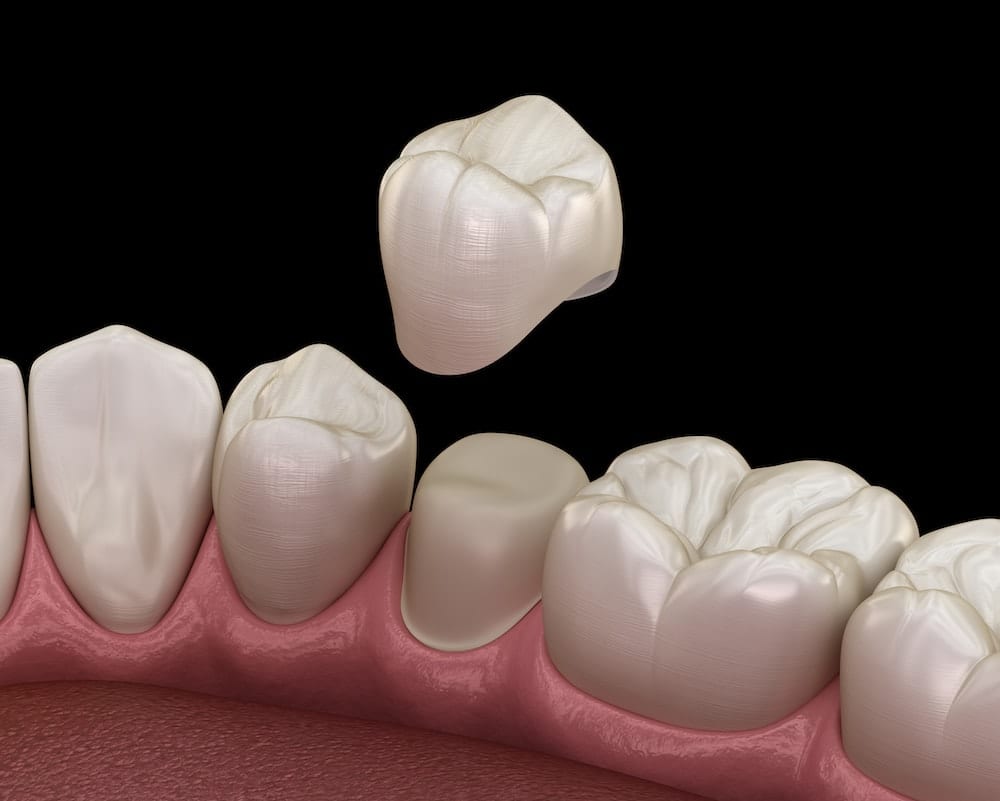Posted October 14, 2020 in Dental Crowns
3 Minute Read:
The teeth, along with many aspects of the human body, are known in the scientific community as a biomechanical marvel. Even so, the teeth can still suffer from structural damage, discoloration, breakage, and even decay. Tooth decay is one of the main reasons patients need to visit their dentist at least twice a year (or every six months) to have a cleaning and a proper dental care examination. During your evaluation, Gentle Care dentists will carefully inspect the different regions of your mouth and distinct margins of your teeth where cavities and decay are known to form. If fracture lines are found on the teeth, crowns may be recommended; at this point, you will be scheduled to have fillings or crowns to prevent shattering or fracturing from worsening.

How Do Dental Crowns Get Cavities?
Dental crowns are derived from porcelain, porcelain fused to metal, or gold. With this composition, a dental crown acts as a durable covering that protects weak teeth from breakage and infection. Still, many patients who seek crowns and other forms of tooth restoration often question if it is still possible to develop cavities after crown installation.
The answer? While it is not possible for crowns themselves to produce cavities or decay, the teeth can still develop cavities around the edges of the tooth restoration or form underneath the restoration. This usually only occurs when correct brushing, flossing, and overall hygiene is not maintained, making it all the more possible for plaque and bacteria to form. Teeth with crowns are just as likely to develop cavities, and this usually derives from the formation of plaque around the gum line where the tooth and crown meet.
How Can I Prevent Cavities From Forming Under My Crowns?
Given the right habits and routine check-ups, crowns are a highly durable tooth restoration designed to last for several years. However, regular neglect and a lack of oral maintenance can compromise even the highest-quality of crowns. To prevent cavities from forming around the edges of tooth restorations, patients should practice brushing their teeth twice a day or even after every meal. Patients can also try flossing after every meal or adopting a Waterpik® or water flossing method to help dislodge food particles from their teeth.
Preventing cavities is a day-to-day process that requires attention and care, but it does not have to be a process you face alone. Regular check-ups are a great way to fight tooth decay, as your dentist will have the skills and equipment (X-rays, dental imaging, and utensils) to help detect mild issues early on. When properly taken care of, crowns, along with other tooth restorations such as veneers and dental bridges, are great methods for adding strength, functional support, and attractiveness to your teeth.
Interested in Learning More?
If you would like more information about oral health and teeth restoration options, contact Gentle Care Dentistry by calling (575) 524-3722 or filling out our contact form to schedule an appointment today.